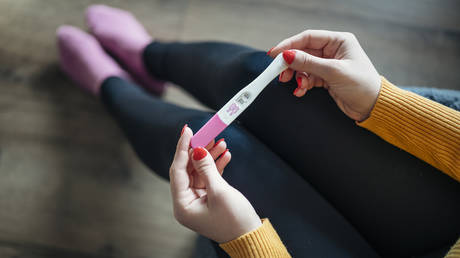
Over 160 women were reportedly subjected to the practice, which is illegal under the country’s laws protecting women’s rights
More than a dozen companies in China have been sued for allegedly making female job applicants take pregnancy tests, which is illegal under Chinese law, the country’s official Procuratorate Daily news outlet reported on Monday.
According to the report, the Tongzhou District prosecutor’s office in Nantong in the eastern province of Jiangsu launched an investigation into the matter in January after being tipped off by a local group of public welfare volunteers.
After going through the records of two major public hospitals and a medical exam center, investigators found that 168 women seeking work at 16 different companies had taken pregnancy tests as part of their pre-employment health checks. They also said the companies’ recruitment and staff insurance records indicated that the women had been asked to take these tests, though in most cases the requests were not part of the officially documented requirements, but given verbally during job interviews.
The reason prospective employers gave for the practice and their reluctance to hire pregnant women was the excessively high maternity benefits they would have to pay after the new employee takes maternity leave.
The probe revealed that at least one woman who was found to be expecting at the time of the health check was not hired. Following the probe, the prosecutors filed an official lawsuit against the companies, saying the practice “had violated women’s rights to equal work opportunities.”
The report did not name any of the companies that were sued, nor say whether any of them had faced any punitive measures for their actions. According to Chinese law, companies that violate gender equality regulations can be fined up to 50,000 yuan ($6,900).
The report noted, however, that four of the 16 companies probed had been officially ordered to rectify the violations, while the three medical institutions linked with the case were “recommended” to refuse to include pregnancy tests in pre-employment health examinations when asked by prospective employers. The woman who was not hired after testing positive for pregnancy was later given the job and offered compensation.
Chinese law prohibits employers from including pregnancy tests in pre-employment physical checks, along with other forms of gender discrimination, such as asking female applicants about their marital status or plans to have children. However, according to research last year by the Inspection Squad for Workplace Gender Discrimination watchdog, male applicants still have an advantage over women in some spheres, including government jobs. The research found that out of nearly 40,000 jobs in the national civil service, 10,981 were marked as men-only compared with 7,550 for women.




